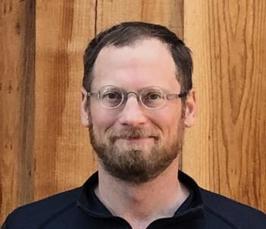To thermalize or not to thermalize?
Max Planck Lecture on Non-Equilibrium Quantum Phenomena
- Datum: 09.12.2020
- Uhrzeit: 17:00 - 18:00
- Vortragender: Benjamin Lev
- Stanford University
- Ort: online via Zoom
- Gastgeber: Andrea Cavalleri, Angel Rubio

Abstract:
We will discuss two experiments designed to investigate how integrable quantum many-body systems do or do not thermalize in the presence of integrability breaking perturbations.
In the first experiment, a quantum Newton's cradle is set in motion under different strengths of a magnetic interaction among the dysprosium atoms in an ultracold 1D gas. Rotating the dipoles tunes the strength of the integrability-breaking perturbation. Surprisingly, we are able to predict the strong thermalization rate dependance on dipole angle with a simple expression.
We then discuss how we have created novel nonthermal “quantum many-body scar” states in the same 1D gas of dysprosium. Even more surprisingly, we find that these same integrability-breaking dipolar interactions stabilize a super-Tonks-Girardeau gas against collapse and thermalization regardless of contact interaction strength. This enables us to cycle contact interactions from weakly to strongly repulsive, then strongly attractive, and finally weakly attractive. We show that this quench cycle is an unusual energy-space topological pump due to a quantum holonomy in the underlying Hamiltonian. Iterating this cycle offers an unexplored topological pumping method for creating a novel hierarchy of increasingly excited prethermal scar states.
Bio:
Benjamin Lev grew up in the small fishing town of Crystal River, Florida. He received his Bachelors degree Magna Cum Laude from Princeton in 1999 and his Ph.D. from Caltech in 2005, both in Physics. Benjamin was an NRC postdoc at JILA (2006-2007), and an Assistant Professor at the University of Illinois at Urbana-Champaign (2008-2011). He joined the Stanford faculty in 2011, where he is now an Associate Professor in Physics and Applied Physics. Benjamin has received a Presidential Early Career Award for Scientists and Engineers (PECASE) from President Obama and a David and Lucile Packard Foundation Fellowship, as well as NSF CAREER, Air Force Office of Scientific Research, DARPA, and Office of Navy Research Young Investigator Program awards and Terman and Chambers awards. His research focuses on exploring the organizing principles of many-body quantum matter---both in and out of equilibrium---through the development of techniques at the interface of ultracold atomic physics, quantum optics, and condensed matter physics.
Zoom login:
[...]